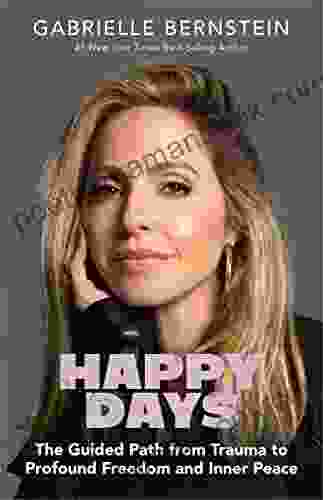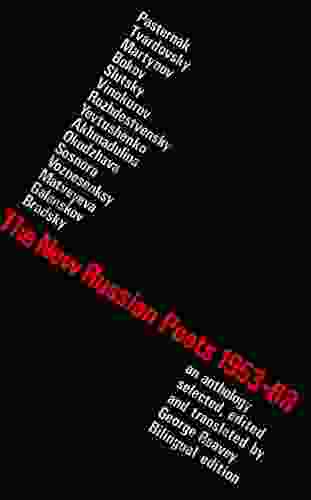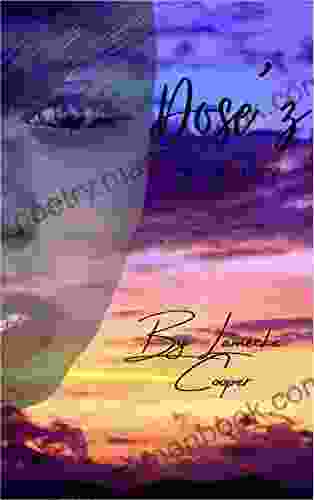The Guided Path from Trauma to Profound Freedom and Inner Peace


Trauma is a widespread experience that can have profound and lasting effects on an individual's life. It can stem from various sources, such as physical abuse, emotional neglect, accidents, or natural disasters, and can manifest in various physical, psychological, and emotional symptoms.
4.7 out of 5
| Language | : | English |
| File size | : | 2095 KB |
| Text-to-Speech | : | Enabled |
| Screen Reader | : | Supported |
| Enhanced typesetting | : | Enabled |
| X-Ray | : | Enabled |
| Word Wise | : | Enabled |
| Print length | : | 236 pages |
While trauma can be a deeply challenging experience, it is important to remember that profound freedom and inner peace are possible. The journey from trauma to healing is not easy, but it is a journey that can be taken with compassion, determination, and the right guidance.
This article will provide a comprehensive guide to navigating the path from trauma to profound freedom and inner peace. We will explore practical tools, expert insights, and inspiring stories to empower individuals on their healing journey.
Understanding Trauma
The first step in healing from trauma is to understand what it is and how it affects the mind and body. Trauma is defined as an overwhelming experience that threatens a person's sense of safety or well-being. It can occur in childhood or adulthood and can have a profound impact on an individual's physical, psychological, and emotional health.
Trauma can manifest in a variety of ways, including:
- Physical symptoms, such as chronic pain, fatigue, and digestive issues
- Psychological symptoms, such as anxiety, depression, and post-traumatic stress disorder (PTSD)
- Emotional symptoms, such as anger, guilt, and shame
- Behavioral symptoms, such as avoidance, isolation, and substance abuse
It is important to remember that each person experiences and responds to trauma differently. There is no right or wrong way to feel or behave after a traumatic event.
The Healing Journey
The healing journey from trauma is a deeply personal and unique experience. There is no one-size-fits-all approach, and what works for one person may not work for another. However, there are some general steps that can be helpful in guiding the healing process.
These steps include:
- Acknowledge and validate your experience. The first step to healing is to acknowledge and validate your experience. This means accepting that what you have been through was traumatic and that it has had a significant impact on your life.
- Seek professional help. A therapist or counselor can provide support, guidance, and tools to help you process your trauma and develop coping mechanisms.
- Practice self-care. Self-care is essential for healing from trauma. This means taking care of your physical, emotional, and spiritual needs.
- Build a support network. Surround yourself with people who love and support you. These people can provide a safe space for you to talk about your experiences and can help you through difficult times.
- Find meaning and purpose in your life. Trauma can lead to feelings of hopelessness and despair. It is important to find meaning and purpose in your life to help you move forward and heal.
The healing journey is not always easy, but it is a journey that is possible. With compassion, determination, and the right guidance, you can move from trauma to profound freedom and inner peace.
Tools for Healing
There are a variety of tools that can be helpful in healing from trauma. These tools include:
- Therapy. Therapy is a safe and supportive space to process your trauma and develop coping mechanisms. There are many different types of therapy that can be effective for trauma, such as cognitive-behavioral therapy (CBT),trauma-focused therapy, and eye movement desensitization and reprocessing (EMDR).
- Mindfulness. Mindfulness is the practice of paying attention to the present moment without judgment. This can help you to become more aware of your thoughts and feelings and to manage stress and anxiety.
- Exercise. Exercise is a great way to reduce stress and improve your overall health. It can also help you to feel more grounded and connected to your body.
- Meditation. Meditation can help you to relax, clear your mind, and connect with your inner peace.
- Yoga. Yoga is a mind-body practice that can help you to reduce stress, improve flexibility, and promote overall well-being.
- Creative expression. Creative expression, such as writing, painting, or music, can help you to process your trauma and express your emotions.
The best tools for healing are the ones that work for you. Experiment with different tools and find what works best for you.
Expert Insights
In addition to the tools and strategies listed above, it can be helpful to hear from experts who have dedicated their lives to helping people heal from trauma.
Here are some insights from leading experts in the field:
- "Trauma is not a life sentence. It is a wound that can be healed." - Bessel van der Kolk, author of The Body Keeps the Score
- "Healing from trauma is a process, not an event. It takes time and effort, but it is possible." - Judith Herman, author of Trauma and Recovery
- "Trauma can be a source of strength and growth. It can lead us to a deeper understanding of ourselves and the world around us." - Oprah Winfrey, talk show host and philanthropist
These insights can provide hope and inspiration on the healing journey.
Inspiring Stories
In addition to the tools and expert insights, it can be helpful to hear from others who have successfully healed from trauma.
4.7 out of 5
| Language | : | English |
| File size | : | 2095 KB |
| Text-to-Speech | : | Enabled |
| Screen Reader | : | Supported |
| Enhanced typesetting | : | Enabled |
| X-Ray | : | Enabled |
| Word Wise | : | Enabled |
| Print length | : | 236 pages |
Do you want to contribute by writing guest posts on this blog?
Please contact us and send us a resume of previous articles that you have written.
 Top Book
Top Book Novel
Novel Fiction
Fiction Nonfiction
Nonfiction Literature
Literature Paperback
Paperback Hardcover
Hardcover E-book
E-book Audiobook
Audiobook Bestseller
Bestseller Classic
Classic Mystery
Mystery Thriller
Thriller Romance
Romance Fantasy
Fantasy Science Fiction
Science Fiction Biography
Biography Memoir
Memoir Autobiography
Autobiography Poetry
Poetry Drama
Drama Historical Fiction
Historical Fiction Self-help
Self-help Young Adult
Young Adult Childrens Books
Childrens Books Graphic Novel
Graphic Novel Anthology
Anthology Series
Series Encyclopedia
Encyclopedia Reference
Reference Guidebook
Guidebook Textbook
Textbook Workbook
Workbook Journal
Journal Diary
Diary Manuscript
Manuscript Folio
Folio Pulp Fiction
Pulp Fiction Short Stories
Short Stories Fairy Tales
Fairy Tales Fables
Fables Mythology
Mythology Philosophy
Philosophy Religion
Religion Spirituality
Spirituality Essays
Essays Critique
Critique Commentary
Commentary Glossary
Glossary Bibliography
Bibliography Index
Index Table of Contents
Table of Contents Preface
Preface Introduction
Introduction Foreword
Foreword Afterword
Afterword Appendices
Appendices Annotations
Annotations Footnotes
Footnotes Epilogue
Epilogue Prologue
Prologue Robert Juliano
Robert Juliano Linsey Hall
Linsey Hall Derek Fell
Derek Fell Courtney Epps
Courtney Epps C P Gause
C P Gause Richard Rutschman
Richard Rutschman Delphia
Delphia Timothy Crouse
Timothy Crouse Rafael Badziag
Rafael Badziag Robert Louis Stevenson
Robert Louis Stevenson Pete Hegseth
Pete Hegseth Heather Hiestand
Heather Hiestand James Reaney
James Reaney Jim Galiano
Jim Galiano John Stevens
John Stevens Christopher Cartwright
Christopher Cartwright Jennifer Varnadore
Jennifer Varnadore Lawrence Wray
Lawrence Wray Vicki Hinze
Vicki Hinze Anabel Bright
Anabel Bright
Light bulbAdvertise smarter! Our strategic ad space ensures maximum exposure. Reserve your spot today!
 Bo CoxFollow ·6.2k
Bo CoxFollow ·6.2k Pat MitchellFollow ·3.9k
Pat MitchellFollow ·3.9k Miguel NelsonFollow ·12.8k
Miguel NelsonFollow ·12.8k Langston HughesFollow ·17.7k
Langston HughesFollow ·17.7k Fredrick CoxFollow ·19.5k
Fredrick CoxFollow ·19.5k David PetersonFollow ·5.9k
David PetersonFollow ·5.9k Jason HayesFollow ·3.3k
Jason HayesFollow ·3.3k Andy HayesFollow ·15.3k
Andy HayesFollow ·15.3k
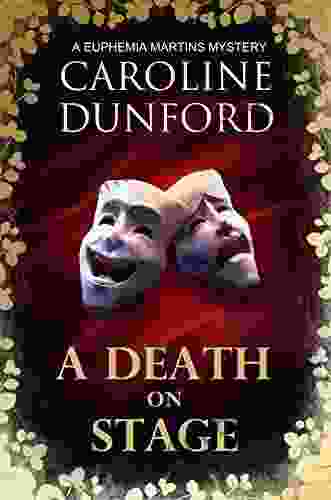
 Patrick Hayes
Patrick HayesDeath on Stage: Euphemia Martins Mystery 16
Synopsis In the...

 Benji Powell
Benji Powell1001 Best Baking Recipes Of All Time
Baking is a fun and...
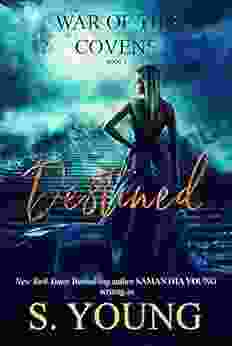
 Terry Bell
Terry BellDestined War of the Covens: A Supernatural Saga of Power,...
Welcome to the...
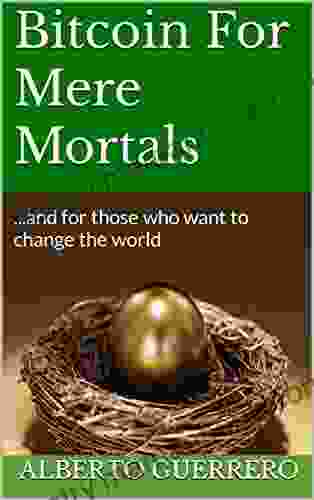
 Mark Twain
Mark TwainBitcoin For Mere Mortals: A Comprehensive Guide for...
Bitcoin is a...

 Dennis Hayes
Dennis HayesThe Best Budget Gaming PC 2024: Build the Ultimate Gaming...
Are you looking to build the best budget...
4.7 out of 5
| Language | : | English |
| File size | : | 2095 KB |
| Text-to-Speech | : | Enabled |
| Screen Reader | : | Supported |
| Enhanced typesetting | : | Enabled |
| X-Ray | : | Enabled |
| Word Wise | : | Enabled |
| Print length | : | 236 pages |


